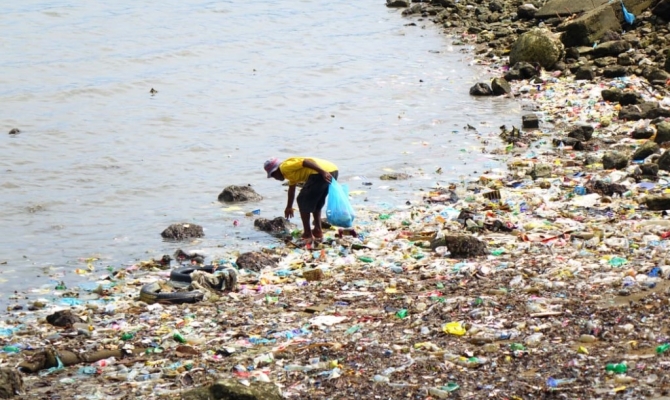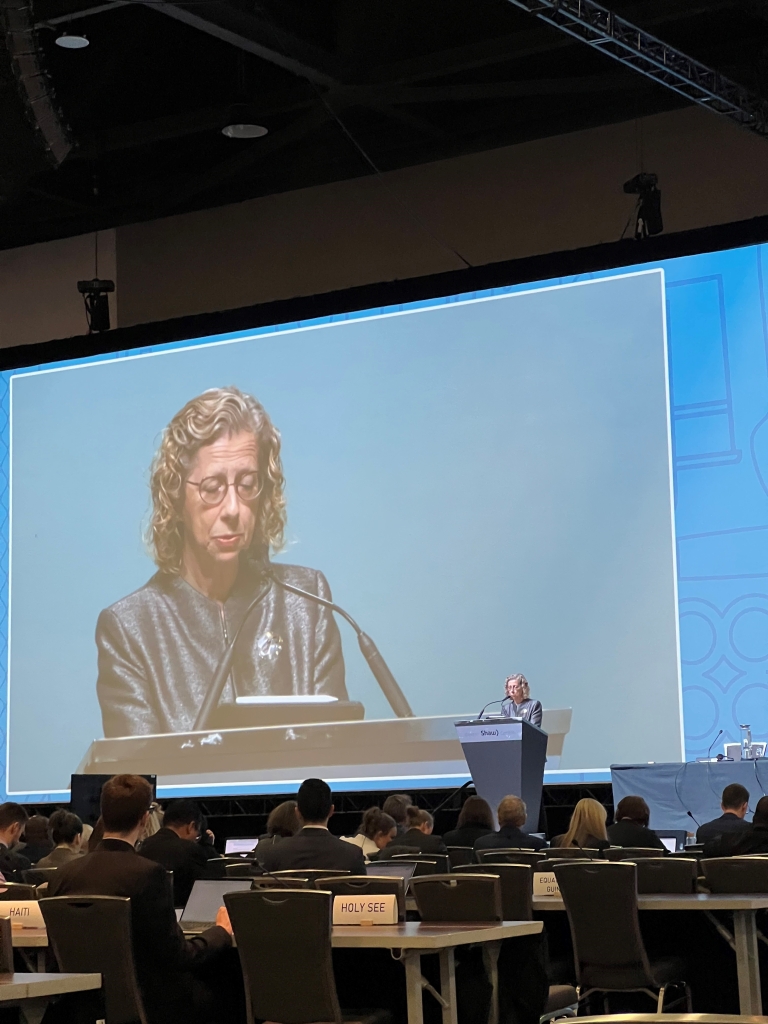
23 April 2024, Ottawa Canada - The United Nations Environment Assembly (UNEA) resolution that gave the greenlight to the Intergovernmental Negotiating Committee (INC) to develop an international legally binding instrument on plastic pollution, including in the marine environment, called for an instrument that deals with the full cycle of plastics.
The reminder came from Ms Inger Andersen, the Executive Director of the UN Environment Programme (UNEP), on Monday during the opening of the fourth session of the Intergovernmental Negotiating Committee to develop an international legally binding instrument on plastic pollution, including in the marine environment (INC-4), taking place from 23 to 29 April 2024 at the Shaw Center in Ottawa, Canada.
“So, to stop plastic pollution, we need to start at the start and end at the end,” officials attending INC-4 in Ottawa, Canada were told. “This means crafting an instrument that ensures we use fewer virgin materials and less problematic plastic. That we avoid exposure to harmful chemicals.
“That we design for circularity. That we use, reuse and recycle resources more efficiently. This is the instrument we need to protect human and ecosystem health – while ensuring a just transition and space for the private sector to thrive in a new sustainable economy.”
Delegations from 14 Pacific countries are joining diplomats, civil society leaders, business groups, and other stakeholders at INC-4 where delegates will base their discussions on a Revised Zero Draft of the future instrument. The revised zero draft is the result of three contact groups established during INC-3 in Nairobi last year, to consider the original zero draft, and a synthesis report on previously undiscussed elements.
The draft contains options for treaty text organised in five sections pertaining to: Primary provisions, including the preamble, objectives, principles, and scope; the management of plastic along its lifecycle, including primary polymers, product design, and waste management, as well as extended producer responsibility, trade, and existing pollution; means of implementation, including financing, capacity building, and technology transfer; tracking implementation, including through reporting, compliance, and international cooperation; and Institutional arrangements, including governing and subsidiary bodies and a secretariat.

At the opening of INC-4 at the Shaw Centre, Ms Andersen lauded the progress made in two years since the UNEA resolution was given.
“We have seen much progress, both in the three negotiating sessions and in growing global backing for an end to plastic pollution,” she said. “We can be proud of what we have achieved. But a job half-done is a job not done. Time is against us – both in terms of finalising the instrument and how much more the planet can take. As we deliberate, plastic pollution continues to gush into ecosystems.”
The UNEP Executive Director pointed to multiple polls which show that the public is heartsick of plastic pollution. She added that civil society – including indigenous peoples, scientist, waste pickers, women’s groups and local communities – have spoken loud and clear against plastic pollution.
According to the mandate, the treaty should be finished by the end of 2024. INC-5 is scheduled to take place 25 November to 1 December in Busan, South Korea.
“Everyone wants this deal,” said Andersen. “INC-4 must take a huge stride towards delivering. By narrowing the options of the draft text. By taking tough decisions. By finding compromise. By agreeing on a mandate for intersessional work, so that, at INC-5 in Busan this November, we can and will finalize an instrument that sets the stage to end plastic pollution.”
The Chair of the Intergovernmental Negotiating Committee (INC), Ambassador Luis Vayas Valdivieso, continues to express optimism that negotiators from all over the world, including Pacific countries, can come up with an agreed text in Ottawa Canada, to take one step closer to a treaty on plastics.
The fourth Intergovernmental Negotiating Committee to develop an international legally binding instrument on plastic pollution, including in the marine environment is taking place in Ottawa, Canada, from 23-29 April 2024.
The Pacific Islands are represented by the Cook Islands, Federated States of Micronesia, Fiji, Kiribati, Marshall Islands, Nauru, Niue, Palau, Papua New Guinea, Samoa, Solomon Islands, Tonga, Tuvalu and Vanuatu through the support of the Government of Australia and the United Nations.
They are supported by the Secretariat of the Pacific Regional Environment Programme (SPREP), working with partners the Pacific Islands Forum Secretariat (PIFS), Office of the Pacific Ocean Commissioner (OPOC), The Pacific Community (SPC), Forum Fisheries Agency (FFA), Environmental Investigation Agency (EIA), Centre for International Environmental Law (CIEL), University of Wollongong, WWF and Massey University.
For more information, visit: https://www.unep.org/inc-plastic-pollution/session-4